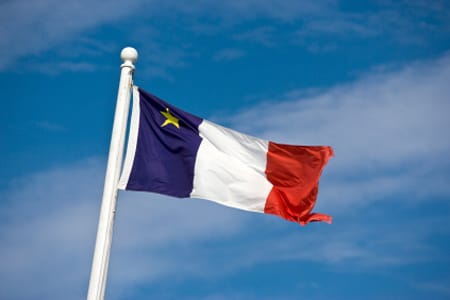A French surname may not mean an Acadian pedigree.
Generalizing is a human tendency, but it’ s a poor habit to get into. It may stem from mental laziness, or simply from our need to arrange information in ways we can readily grasp. The trouble is that, sometimes, we get things wrong.
Although my Irish ancestors were in Nova Scotia well before 1845, I have been told—many times—that “all the Irish came here because of the Potato Famine.” How many times has someone attributed the Scottish immigration of the 19th century to Highland Clearances (the forced removal of Highlanders by absentee landlords), even when the family came from Glasgow or Edinburgh, where their families had lived longer than anyone can remember?
It is easy to understand how these sorts of blanket statements become so-called “historic truths.” Consider, for example, the claim that democracy flourished in 1758 when Nova Scotia got a legislature. Were the legislators elected by women? Not exactly. By Catholics? Blacks? Mi’ kmaq? Well, no, no, and no. In fact, the voters did not include most of the white Protestants either, but it was, as they say, a start.

When I was in grade school, we were taught that virtually every Acadian had been expelled from the Maritimes starting in 1755. We were also taught that parties of exiles later walked all the way back from Louisiana. Within that hyperbole lurked a germ of fact, but the simplifications left an entire generation with a flawed version of what had happened two centuries earlier.
At some point, the suspicion grew on me that some Acadians had escaped the deportation, and I was correct. A few hid. More interestingly, some had been kept in the province because they possessed the skills to build and maintain effective land drainage systems in areas of good farmland.
As my interest in the foreign Protestant migrations of the 1750s deepened, so did the realization that about 500 francophone Protestants, mainly Lutherans, were included among those newcomers. Should there be any mystery about who these families were, read the Montbéliard memorial in Lunenburg, NS, with its list of surnames: Boutilier, Langille, Jodrey, Biguenet, Jollimore and more. While these folks were ethnically and, at the time, linguistically French, they were never “Acadians” because they were not descended from the 17th century French colonists who had settled in the area known as Acadia.
In Cape Breton, and in Isle Madame in particular, French-speaking Jerseymen, (from Jersey, one of the Channel Islands belonging to England) dominated the fisheries. Surnames include Robin, Janvrin and Bourinot.
Huguenots were French, but certainly not Acadians. In our region we find, for instance, Pineo, which sounds Spanish, and Fanjoy, which appears English, yet they were once Pineau and Fanjeux—French—until forced to flee religious persecution.
When the French evacuated Île Royale and Île St. Jean after the Seven Years’ War, most of the inhabitants were taken to France or to a colony such as St. Pierre and Miquelon. But not all the French had gone forever. Names that were clearly French, but not Acadian, show up in the records of later decades. Mombourquette and Paty (Pottie), Clergé and Josse (Joyce) are examples of such families in Cape Breton.
Sometimes it’s tricky to determine whether people are Acadian or not—some natives of France had surnames that were found among Acadian families, but careful genealogical investigation is needed before they can be classified.
If it seems that I have been minimizing the number of Acadians, keep in mind that there are the hundreds of Acadian descendants whose names have become anglicized. Such people should be considered part of the Acadian population. Many Whites had been LeBlancs, many Aucoins wound up as Wedge or O’Quinn, and many Benoits have become known as Benight. The step from Dubois to Woods, Forgeron to Smith, or Bourgeois to Burgess was simple translation. Sometimes names were similar enough in sound that Pitre might slip into English as Peters, and with a little imagination Petitpas could turn into Pitts.
Atlantic Canadians of French descent are not necessarily Acadians, but perhaps some descendants have yet to make that discovery. Here is another case where the pursuit of genealogy leads down fascinating byroads.
Dr. Terrence M. Punch is the author of the four-volume series Erin’s Sons: Irish Arrivals in Atlantic Canada. In January he was named a member of the Order of Canada.
